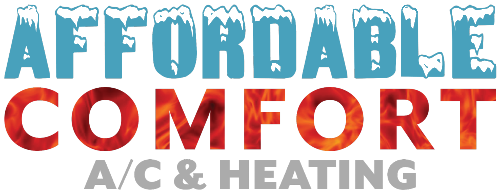Signs an Air Conditioner is Failing
Air conditioner problems can tremendously impair home comfort. Because the compressor is so essential to an air conditioning unit's successful operation, it's more than worth monitoring it for signs of damage or failure.
Moreover, an air conditioning unit should never make strange noises. Not only because you can't enjoy the bliss of cold air with a racket going on, but also because that din coming from your air conditioning unit is an omen for trouble. Noises almost always indicate a foreign object, broken parts, or mechanical/electrical failure, none of which are good for the unit. Because an air conditioning unit can be dauntingly expensive, it should always be turned off and examined by a professional if it begins to make strange sounds.
The way the compressor works
A compressor pushes the refrigerant gas through the line in a compressed form, heightening its temperature and altering it into a gas. The gas is then forced through an outdoor coil, where the heat released condenses it into liquid form. The liquid then moves to the indoor portion of the a/c, where it turns into a gas again and collects the heat from the home.
If any segment of the system becomes damaged or stops working, the unit can fail. A compressor will occasionally provide warning signs and sounds that mean it isn't working correctly. Here are a few to consider:
Warm air
If the system is functioning and the compressor functions, but the air emitted is warm, it might be a refrigerant leak. Occasionally, a leak is suspected when the homeowner discovers that the unit isn't cooling the way it ought to anymore. A trend of gradually warmer air from the unit can happen over time. Warm air might also be a sign that the compressor isn't pumping coolant and has failed. Either way, turn it off and call a professional for help.
Tripping the circuit breaker
If a homeowner finds themselves repeatedly resetting the condenser's circuit breaker, this suggests the unit is unsafe. Circuit breakers are a safety switch of sorts, so if the circuit is overloaded, it trips to prevent the wiring from being damaged and the unit from creating a fire. A power surge might also be the culprit for a circuit breaker tripping. It's recommended to turn the thermostat to the 'off' position for 30 minutes, resetting the breaker, and then waiting to determine if the unit's internal thermostat can be reset. If, after the half-hour, one sets the thermostat back to 'cool' and the unit functions correctly, then it is a surge issue.
Vibration or shaking
Strong vibration at the beginning of the unit turning on might mean the capacitor is broken. A capacitor keeps energy to signal the unit to start, and works in tandem with the fan, the blower motor, and the compressor. As soon as a capacitor fails, a compressor is forced to 'hard start,' which causes it to shake upon starting. This should cause alarm bells to go off in a homeowner's head because it's a sign of imminent failure. Turn the system off and call a professional as soon as possible.
Ice building on the coils
Low refrigerant in an air conditioner depresses the refrigerant pressure and lowers the temperature in the evaporator coils causing ice to build up. The ice diminishes the efficiency of the compressor, and it begins to fail.
Warm air flowing over the coils is also essential to stop the coils from freezing. The lack of warm air might be caused by a clogged air filter or dirt on the coils, which will reduce the amount of warm air that passes over the coils or inhibit the cooling exchange process. Another possible issue is a blocked return vent or clogged air ducts. If the fan breaks, it will have a similar effect, as there won't be any warm air to pass over the coils.
An electric bill spike
As the most significant single user of electricity for your home, an AC with something amiss in the AC compressor can cause your electric bill to soar. Additionally, many homeowners will discover that when they replace their a/c unit, the cost of running it goes dramatically down since even the slightly newer units are so much more efficient. Because these units' efficiency has increased so much in just a few years, a new one usually pays for itself in just a couple of years.
Compressor failure
If the compressor doesn't turn on, but the fan is functioning, and the temperature is rising, a homeowner might turn the thermostat down to see if the unit will turn on. If it doesn't, the issue might be the compressor. This is critical because a compressor is so costly to fix that the cheapest course of action might be to replace the entire system. As soon as a professional has examined the unit, it's easier to make an informed decision about the best way to move forward.
When you need AC repair and maintenance, AC installation, and ductless AC services for your residential or commercial property in the Phoenix, AZ Metro area, Call Affordable Comfort A/C and Heating at 602-574-1205. Our company is licensed, bonded, and insured.

